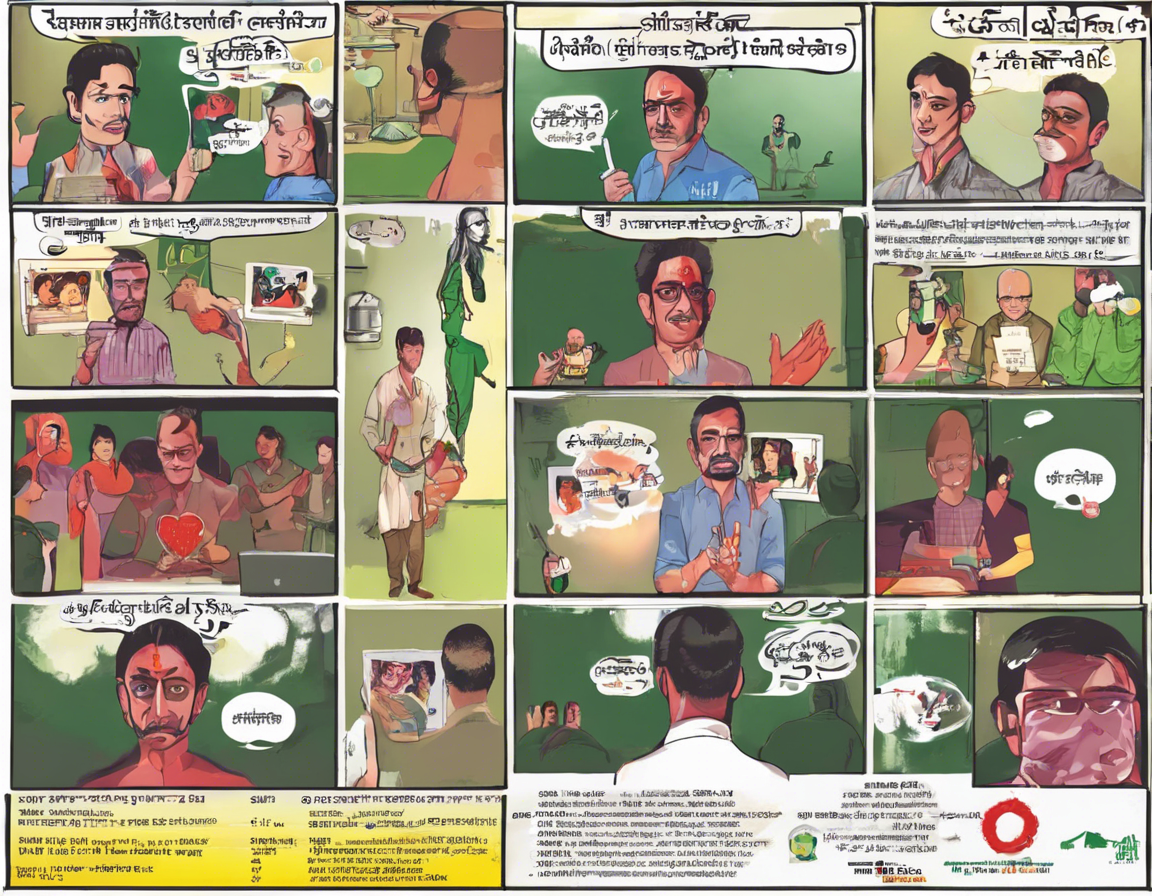
Recognizing Early Symptoms of HIV: A Quick Guide
Introduction
HIV, or Human Immunodeficiency Virus, is a virus that attacks the body’s immune system, specifically the CD4 cells (T cells), which help the immune system fight off infections. If left untreated, HIV can lead to the disease AIDS (Acquired Immunodeficiency Syndrome). Early detection and treatment of HIV are crucial in managing the virus and preventing its progression to AIDS. Understanding the early symptoms of HIV is essential in seeking timely medical intervention and support.
Early Symptoms of HIV
- Acute Retroviral Syndrome (ARS):
- ARS, also known as acute HIV infection, occurs within the first few weeks after contracting the virus.
- Symptoms can be flu-like and may include fever, chills, rash, muscle aches, sore throat, and swollen lymph nodes.
-
Not everyone with HIV will experience ARS, but it is a common early sign of infection.
-
Persistent Fatigue:
- HIV can cause persistent fatigue that may not improve with rest or sleep.
-
Fatigue is a common symptom of many illnesses, so it’s important to consider other risk factors if present.
-
Frequent Infections:
- As HIV weakens the immune system, individuals may experience frequent infections such as respiratory infections, yeast infections, or skin infections.
-
Recurring infections without a clear cause should raise suspicion for HIV.
-
Swollen Lymph Nodes:
- The lymph nodes are an essential part of the immune system and may become swollen or tender as the body fights off infections, including HIV.
-
Persistent swelling of lymph nodes, particularly in the neck, armpits, or groin, can be a sign of HIV.
-
Unexplained Weight Loss:
- Rapid and unexplained weight loss can be a symptom of HIV.
-
Weight loss may occur even when appetite and food intake remain normal.
-
Skin Rashes:
- HIV can cause various skin conditions, including rashes, sores, or lesions.
-
Skin manifestations may vary in appearance and severity, and they can be a sign of underlying HIV infection.
-
Night Sweats:
- Profuse night sweats unrelated to room temperature or excessive bedding can be a symptom of HIV.
-
Night sweats often disrupt sleep and may be accompanied by other symptoms like fever or chills.
-
Gastrointestinal Symptoms:
- HIV can affect the gastrointestinal tract, leading to symptoms like nausea, vomiting, diarrhea, or abdominal pain.
- Persistent gastrointestinal issues should prompt further evaluation for potential HIV infection.
FAQs on Early Symptoms of HIV
- Can HIV symptoms appear immediately after infection?
-
Symptoms of acute HIV infection (ARS) typically appear within 2 to 4 weeks after exposure to the virus, but in some cases, they can manifest sooner or later.
-
Are early HIV symptoms similar to the flu?
-
Yes, early symptoms of HIV, particularly during ARS, can mimic flu-like symptoms such as fever, sore throat, and fatigue.
-
Is it possible to have HIV without any symptoms?
-
Yes, some individuals may be asymptomatic or have mild symptoms that go unnoticed, which underscores the importance of regular testing for HIV.
-
Do all early HIV symptoms progress to AIDS?
-
Not everyone with HIV will progress to AIDS if they receive timely medical care, adhere to treatment, and maintain a healthy lifestyle.
-
Can medications help manage early HIV symptoms?
- Antiretroviral therapy (ART) is the primary treatment for HIV and can effectively manage the virus, improve immune function, and reduce symptoms when started early.
Conclusion
Recognizing the early symptoms of HIV is crucial for prompt diagnosis, initiation of treatment, and better disease outcomes. Individuals experiencing any of these symptoms should seek medical advice and consider getting tested for HIV. Early detection and intervention play a vital role in managing HIV, improving quality of life, and reducing the risk of transmission to others. Regular HIV testing, practicing safe sex, and adopting healthy lifestyle habits are essential in preventing HIV infection and its complications. Stay informed, stay vigilant, and prioritize your health when it comes to HIV awareness and prevention.


